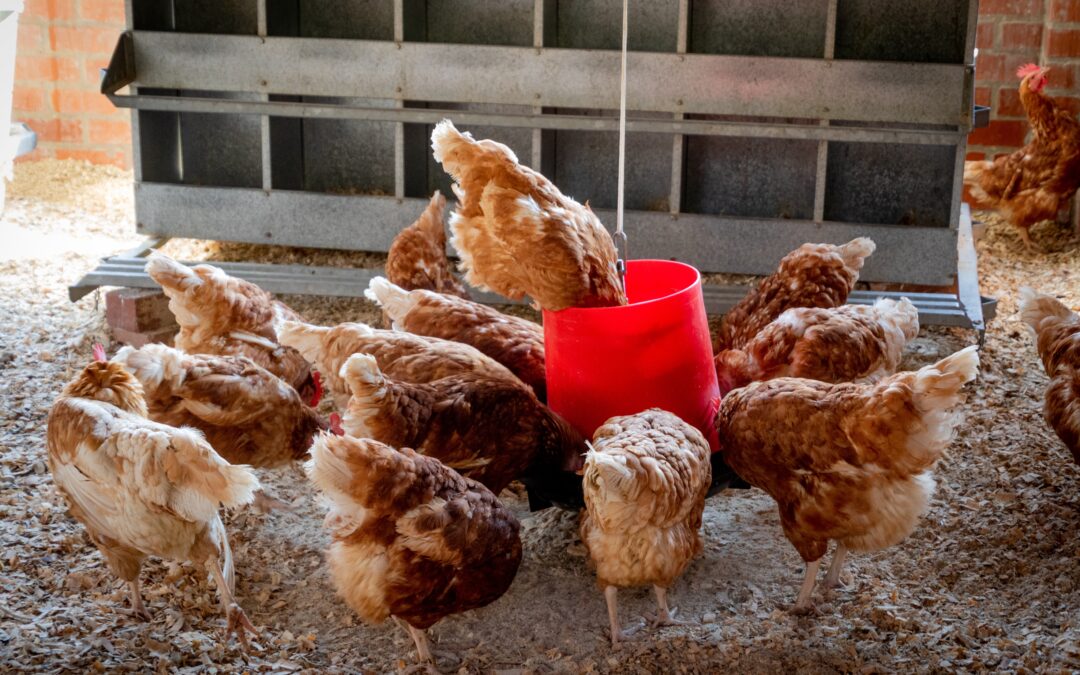Police in Poland have detained four people accused of fraudulently selling oils for animal consumption that were in fact classified as being for industrial purposes. Two have reportedly already pleaded guilty.
Experts fear the scandal could have wider repercussions for the Polish poultry sector, which is the EU’s biggest and exports nearly half of the meat it produces. However, the agriculture minister has assured that the quality of feed is systematically checked and no contamination has been discovered.
On Monday, news websites Wirtualna Polska and Onet reported that investigators had gathered evidence that Polish chickens and ducks had been given feed containing oils meant for use in the production of greases and biofuels.
📍Na nasze stoły trafiało mięso zwierząt, które były karmione komponentami do produkcji paliwa. Dostawały pasze zawierające tzw. tłuszcze techniczne. Podejrzaną karmę nieświadomie stosowały bardzo znane firmy z branży mięsnej – ujawnia @luk_ciesla https://t.co/KeoZbMjq2S
— Kamil Dziubka 🇵🇱🇺🇦 (@KamilDziubka) October 3, 2022
In poultry farming, fats are added to feed to ensure greater weight gain, improve the absorption of nutrients, and, in laying hens, to increase the number of eggs laid. Such fats, however, have to be produced under appropriate conditions and properly certified for animal consumption.
But, according to reports, a Polish couple running a firm in Poznań sought to cut costs by importing oils from, among others, Ukraine, Russia and Malaysia and declaring that they were so-called technical fats – used, for example, in fuel production – not food oils that would be subject to veterinary checks.
Wirtualna Polska reported that the practice may have been going on since 2017, but the allegations, for now, cover only the period from January 2020.
The couple have pleaded guilty, reports Onet, but claim that the technical fats were not much cheaper than the food fats and supposedly did not contain much more harmful substances. They claim that they wanted to be competitive in the market and not wait for veterinary checks at the borders.
The prosecutor’s office in Szczecin believes that the couple – named only as Maciej and Monika J. under Polish privacy law – and two of their employees acted in an organised criminal group guilty of fraud worth more than 170 million zloty (€35.28 million), reports the Dziennik Gazeta Prawna daily.
The two employees – a laboratory technician and a manager – said after being detained that they were unaware of the activities of their bosses. They have pleaded not guilty.
While Onet and Wirtualna Polska did not name the company involved, other media, including the Rzeczpospolita daily, reported that it is Berg+Schmidt. In a statement yesterday, that firm’s German owner, Stern-Wywiol Gruppe, said it was “shocked” by the reports and does “not tolerate such activities”.
It pledged to cooperate with investigators and said it has suspended the operation of Berg+Schmidt until further notice, reports the Polish Press Agency (PAP).
🇩🇪👉 Niemiecki właściciel zapowiada "zero tolerancji" dla nieprawidłowości wykrytych w polskim oddziale.https://t.co/Td2FbIzArb
— portalspozywczy (@portalspozywczy) October 4, 2022
Poland accounts for 19% of the EU’s poultry production, making it the bloc’s biggest producer. Some experts worry that the feed scandal could harm the industry, which is already under pressure from rising grain prices.
“Some foreign markets are very sensitive to issues concerning the safety of Polish food, and negative information is an argument to question its quality…[and could] have a negative impact on exports,” Mariusz Dziwulski, an agricultural and food market analyst at PKO BP bank, told Rzeczpospolita.
However, the agriculture minister, Henryk Kowalczyk, assured that there should be no fears about the safety of Polish poultry. “The veterinary service has systematically checked the quality of feed” and “out of more than 300 samples per year that are taken, no trace of dangerous substances have been detected”, he said.
But, in the wake of the recent revelations, he added that additional inspections would be carried out of both poultry meat and feeds.

Main photo credit: Magda Ehlers / Pexels

Alicja Ptak is deputy editor-in-chief of Notes from Poland and a multimedia journalist. She has written for Clean Energy Wire and The Times, and she hosts her own podcast, The Warsaw Wire, on Poland’s economy and energy sector. She previously worked for Reuters.




















